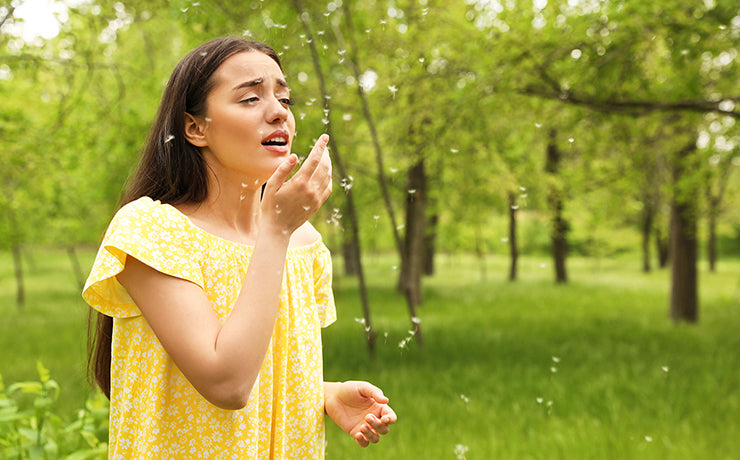
As we say hello to sunnier days, not all of us will have as big a spring in our step – that’s the roughly 16 million people in the UK who suffer from seasonal allergic rhinitis, more commonly known as hayfever.
Hayfever is one of the most common allergic conditions and something that one in four people in the UK experience. Telling us all about the symptoms and challenges, along with some handy advice, is John Bell & Croyden Pharmacist, Hallam Wiltshire.
Firstly, what makes someone more susceptible to hayfever?
The are several factors that can increase the risk of hayfever, this includes everything from genetic predisposition, to having other atopic conditions such as asthma and/or eczema.
Allergic conditions can only develop when you have been exposed to an allergen, but the inverse is also true in that repeated exposure to allergens can also help individuals desensitise to allergens! Early childhood exposure to tobacco smoke and other pollutants can also increase the risk of developing allergies initially, and these pollutants can also exacerbate allergies throughout life.
What are some of the best OTC treatments available to manage symptoms?
The most common class of medicines used to treat hayfever are antihistamines, which block the action of histamine which is released when the body sees itself as “under attack” from a foreign allergen.
In tablet form, antihistamines will tackle most allergy symptoms including sneezing, itching, and watery eyes but may not help with congestion. If specific symptoms are particularly troublesome it may be worth using antazoline eye drops for itchy eyes. For itchy skin, diphenhydramine or mepyramine cream can be helpful.
Another helpful class of medicines are corticosteroids, which are available as nasal sprays (e.g. beclomethasone and fluticasone). These are most effective at supressing nasal symptoms, but they need a week or so to become effective – and they also need to be used regularly!
Can pets can make hayfever symptoms worse for sufferers?
Having pet allergies can make you more predisposed to developing hayfever, as well as having more severe symptoms, as animal dander can further irritate your immune system. If you suffer from pet allergies, it is worth treating these year-round.
Pets with thick fur in particular can easily collect pollen on their coats as their roam outside, so when they return from the outdoors be sure to brush them down or wipe with a damp cloth to remove as much pollen as possible.
What self-care advice can pharmacy staff recommend?
The best way to treat an allergy is to avoid the allergen entirely, though this may be easier said than done. For pollen allergy, avoid walking in open spaces outdoors, especially in the early morning and early evening, when the pollen count is high.
Make sure to keep windows shut, shower and change clothes after pollen exposure, and wear wraparound sunglasses to protect your eyes. Even a blob of petroleum jelly in the nose can help capture pollen. You can keep an eye on the pollen counts via the Met Office website or other websites and mobile apps. Another helpful avenue is to find out if your local pharmacy offers allergy blood testing, which can help you pinpoint which specific allergens you are allergic to.

